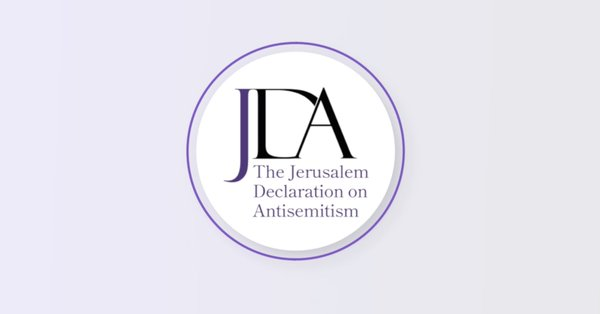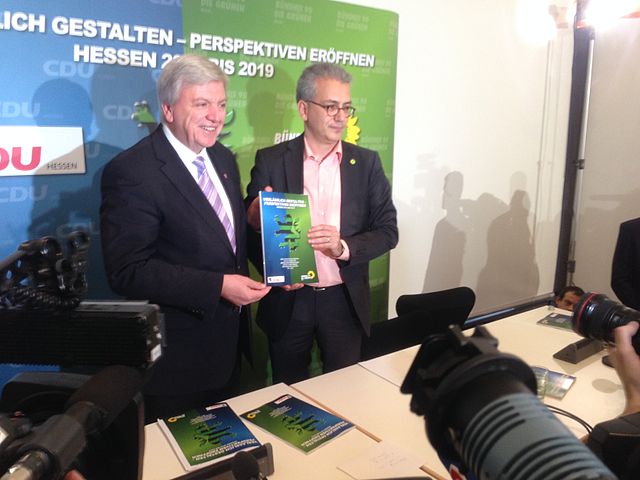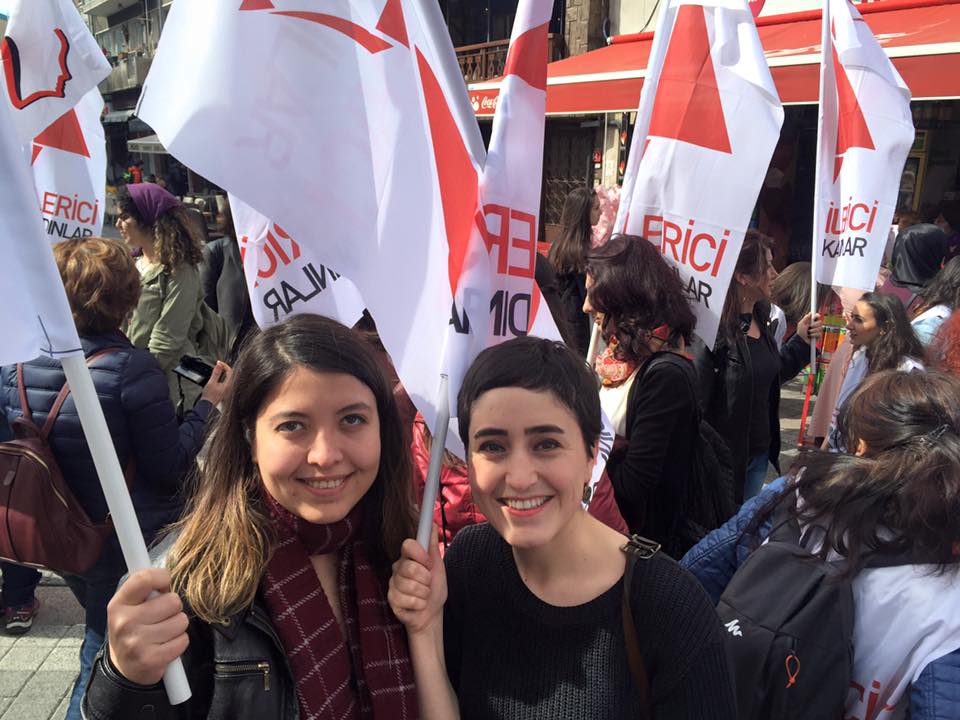25 March 2021 saw the release of the ‘Jerusalem Declaration on Antisemitism’ (JDA), a document that emerged from a year-long collaboration between scholars in the fields of Holocaust history, Jewish studies and Middle East studies, and was signed by over 200 academics from these and related disciplines. After years of damage caused by the ‘working definition’ of antisemitism launched by the International Holocaust Remembrance Alliance (IHRA), which has been circulating since 2016, there is finally a competing document with substantial intellectual weight behind it. Indeed, the JDA specifically states its aim of replacing the IHRA definition.
For years, activists and academics, and even one of the main contributors to the IHRA definition, Kenneth Stern, have complained that the document is being used as a universal standard and an instrument to restrict freedom of speech. It is ironic that something proposed as a working definition – ostensibly a work in progress, something subject to further modification and refinement over time – should have established itself as an incontestable yardstick, a document that lobby groups could pressure organisations and institutions in the fields of academia, culture, politics and even sport to adopt formally. For many in Europe and North America, its validity is so self-evident that to challenge it is to undermine the fight against antisemitism and insult the Jews who are at risk of such discrimination.
Far from being a primarily Jewish attitude, this view has established itself among many non-Jewish groups and individuals who wish to demonstrate their commitment to that worthy cause. Indeed, an important factor in their embrace of the definition – alongside lobbying pressure – is the fact that it appears to give them clarity on an issue that a surprising number of them seem to have difficulty understanding. This is because waters that should be quite clear have been muddied by the discursive dominance of the issue of Israel, its occupation of Palestinian land and its violence towards Palestinians.
Evidence-based criticism
Another contradiction in the IHRA definition is its combination of vagueness and restrictive specificity. While the definition itself, which is followed by eleven examples (of which seven deal with Israel), speaks nebulously of a ‘certain perception of Jews, which may be expressed as hatred toward Jews’, the examples seek to proscribe such statements as ‘The state of Israel is a racist endeavour’. By failing to draw clear lines between racial prejudice and political positions, the IHRA makes it very easy to discredit the latter through accusations of the former. After a preamble, the JDA echoes this structure by providing a concise definition – ‘Antisemitism is discrimination, prejudice, hostility or violence against Jews as Jews (or Jewish institutions as Jewish)’ – and following this with guidelines and examples. One particularly important passage at the very end states:
Criticism that some may see as excessive or contentious, or as reflecting a ‘double standard,’ is not, in and of itself, antisemitic. In general, the line between antisemitic and non-antisemitic speech is different from the line between unreasonable and reasonable speech.
In other words, a political statement should be assessed first of all on the basis of its political content; this means that a statement about Israel should be viewed first of all as applying to the state, not to Jews, and the JDA also emphasises that ‘evidence-based’ criticism of the state is not inherently antisemitic.
As a result, the JDA makes previously unspeakable issues negotiable: support for boycotting Israel or the demand for a single Israeli-Palestinian state are not in themselves discriminatory, and the reader is reminded that boycotts are a time-honoured political tool. No doubt this will enrage pro-Israel actors whose argumentation rests on the assertion that these are, in fact, antisemitic – such as the 2019 anti-BDS resolution passed in the Bundestag. Thankfully, the text does not embark on any deliberations on supposedly troubling associations or undertones, such as the Nazi boycott of Jewish businesses, making clear that this is an optional debate that is unnecessary for purposes of definition. Such debates play into the hands of those who assert the centrality of coded expressions of antisemitism, antisemitic ‘tropes’, for almost any critical statement about Israel.
Just as years of debate about a definition of antisemitism have mainstreamed the notion that such a document is necessary, the endless discussions of codes and tropes has widely established the premise that the importance of coded references is unique to antisemitism and its history. Yet it should go without saying that any tradition of prejudice has its own tropes, some more obvious and some more coded, some more aggressive and some more subtle. The implication that Muslims are fanatics, that black people are inherently violent or uncontrolled, that homosexuals are deviants who spread disease and probably engage in pedophilia too, that Roma and Travellers are born thieves and liars, and so forth – all of these prejudices are encountered in daily life and studied by academics. Rich, hook-nosed Jews plotting to take over the world are just one more figure in this universe of discrimination and dehumanisation.
Recognising the importance of bringing disadvantaged groups together for the cause of anti-racism and anti-discrimination is crucial, and the JDA explicitly recognises this, asserting that ‘while antisemitism has certain distinctive features, the fight against it is inseparable from the overall fight against all forms of racial, ethnic, cultural, religious, and gender discrimination.’ Such an acknowledgement is sorely lacking in the IHRA definition.
The importance of context
By stating that certain views or formulations are not antisemitic ‘on the face of it’, the JDA emphasises the importance of context. In other words, it encourages thinking rather than blind obedience and knockdown arguments. The twisted logic that repeatedly leads to the defamation of pro-Palestine activists, including Jews, is done away with. In the FAQ section, which is helpful in discussing applications and interpretations of important points, the reply to a question about distinguishing between antisemitism and anti-Zionism clarifies:
The two concepts are categorically different. Nationalism, Jewish or otherwise, can take many forms, but it is always open to debate. Bigotry and discrimination, whether against Jews or anyone else, is never acceptable. This is an axiom of the JDA.
A central paradox in the discourse around what some (especially in Germany) call ‘Israel-related antisemitism’, mirrored in the IHRA definition, is that the conflation of Jews and Israel is condemned as antisemitic on the one hand, for example in the case of hostilities against Jewish people due to the violent acts of ‘their’ state, but on the other hand, this conflation is continued with positive connotations – a vicious circle. Similarly, one of the greatest absurdities of the IHRA document is that it decries the application of ‘double standards’ to Israel, a notion that is routinely used to challenge criticism that is considered normal when applied to other states with democratic deficits.
Only a separation of the two categories can curb such tendencies, and this separation is explicitly attempted by the JDA, as in its statement that anti-Zionism is not antisemitic. Moreover, pro-Israel individuals and organisations must now be confronted more strongly with the question of whether their own stance is not also characterised by antisemitic generalisation and conflation.
Some criticisms of the JDA
All this does not mean that there is no reason to criticise the JDA, and indeed, while its reception among progressive organisations (including various Jewish ones) has been largely positive, reservations have been expressed, not least on the Palestinian side. One is that the very name of the document immediately places the focus on the Israel-Palestine issue, which is thus immediately in play; antisemitism without reference to Israel is dealt with in the first points, but is automatically placed second by the naming. This framing is, of course, a reaction to the discourse poisoned by the IHRA definition, and the JDA emphasises several times that it sees itself as a correction of that. Still, one could criticise the JDA for engaging in this game and perpetuating the association.
There is also barely any reference to the most immediate antisemitic threat, which comes from the far right and white supremacism; there is merely one sentence in the FAQ stating that ‘The general guidelines (1-5) apply in all contexts, including the far right, where antisemitism is increasing.’ Moreover, while it emphasises that antisemitism and the understanding of it should not have special status, it potentially encourages this assumption by explicitly recommending itself as a ‘substitute’ for the IHRA definition. Although it states that it does not want to be a binding code either, it fails to point out that the very assumption that such a document is needed at all, and only for antisemitism, not for Islamophobia, anti-black racism, anti-queer discrimination and the like, is problematic in itself.
Also, the Palestinian perspective could be taken more into account – for example, a seemingly classically antisemitic statement about the excessive power of ‘the Jews’ or the unique evil of Israel would have a completely different meaning if made by traumatised residents of the blockaded and bombed Gaza Strip. The existence of such long-standing tropes as well-poisoning or child-murdering Jews is no reason to refrain from pointing out the genuine poisoning of wells in the West Bank, or the killing of some 500 children in the bombardment of Gaza in 2014. However, the document’s emphasis on discussion and context is not really compatible with such equations. Some of these questions and others are addressed in the FAQ appendix, which, in further contrast to the IHRA text, shows how the principles explained can help in evaluating statements and actions. This demonstrates how much the authors have also thought about the possible misuse of their document.
Why has the declaration been written?
Moreover, it is important to consider the purpose and target audience of the JDA. It was not written for Palestinians in order to tell them what they are allowed to say; it was written to counter those who instrumentalise antisemitism as a political weapon to attack solidarity with Palestinians, very often using the IHRA definition to do so. Many organisations that have felt the need to adopt the latter did so in order to demonstrate that they are on the side of Jews and because they were afraid of offending them; accordingly, some will feel that the JDA is not sufficiently clear and simple. The European Union even published a handbook for the application of the IHRA, further entrenching its failings. The JDA makes suggestions rather than presenting a checklist. But if it can achieve anything, it is this: to undermine that simplistic concept. While accepting the importance of the Israel-Palestine issue for purposes of debate – it is difficult to rebut an argument without addressing it – it can perhaps be used to show those who would prevent any debate that the matter cannot be viewed in such a reductive way. Another definition recently launched, the Nexus Document, contributes to this by its very existence; the more definitions or interpretations that are circulating, the less convincing the idea of a single one will seem.
It remains to be seen whether the JDA can change the discourse and counteract the suppression and demonisation of pro-Palestine activism and views. This cannot happen overnight; the damage done by the IHRA definition over the last five years or more is immense, and those who seek to avoid or prevent debate will not want to accept the premises of the JDA. It will be the task of activists and the small number of like-minded politicians willing to stand up against that demonisation to exert pressure and keep the discussion going. And perhaps it will turn out that the most realistic prospect is not so much the acceptance of the JDA as sowing doubt and weakening faith in the universal validity of any fixed definition.
At any rate, the wording of each individual formulation should not be the point here. The potential usefulness and strengths of the JDA far outweigh its weaknesses or omissions, and in the absence of comparable instruments with which to oppose the IHRA definition, it must be put to the test.




